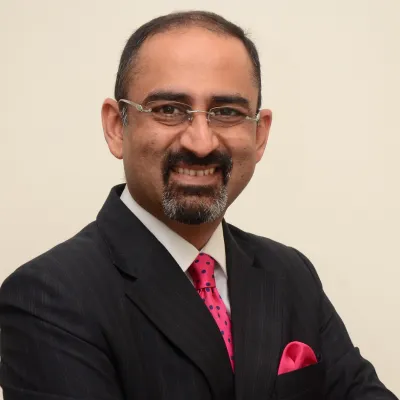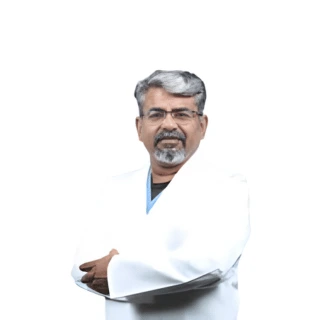A colonoscopy is a medical procedure that allows healthcare providers to examine the inner lining of the colon (large intestine) and rectum. It is performed using a colonoscope, a long, flexible tube with a small camera and light source attached to its end. The colonoscope is inserted through the anus and advanced through the entire length of the colon, enabling the visualization of the colon's mucosal surface on a monitor.
The Primary Objectives of a Colonoscopy Include:
- Screening and Early Detection: Colonoscopy is used as a screening tool to detect colorectal conditions early, including colorectal cancer. Early detection often leads to more effective treatment and better outcomes.
- Diagnosis: Colonoscopy aids in diagnosing various gastrointestinal conditions, such as inflammatory bowel disease (IBD), diverticulosis, and polyps.
- Treatment and Intervention: During colonoscopy, certain therapeutic procedures can be performed, such as polyp removal, tissue biopsy, and the control of bleeding.
Principles of Colonoscopy
The fundamental principles of colonoscopy include:
- Visualization: The colonoscope provides real-time visual access to the entire colon and rectum, allowing the healthcare provider to examine the mucosal lining for abnormalities.
- Biopsy and Sample Collection: If suspicious areas or polyps are detected, tissue samples can be obtained for biopsy to determine whether they are benign or cancerous.
- Polyp Removal: During the procedure, small polyps can be removed through the colonoscope to prevent them from potentially developing into cancer.
- Patient Comfort: Colonoscopy is typically performed under sedation to ensure patient comfort and minimize discomfort during the procedure.
The Colonoscopy Procedure
The colonoscopy procedure typically consists of the following steps:
- Preparation: Prior to the colonoscopy, the patient is required to follow a clear liquid diet and take laxatives or enemas to empty the colon completely. A clean colon provides optimal visibility during the procedure.
- Sedation: In most cases, the patient is administered sedation to induce a state of relaxation and drowsiness. While sedated, the patient is not fully unconscious but is unlikely to experience discomfort or remember the procedure.
- Insertion: The colonoscope is gently inserted through the anus and advanced through the rectum and colon.
- Visualization: The camera at the tip of the colonoscope captures images of the colon's inner lining, which are displayed on a monitor in real time. The healthcare provider carefully examines the entire colon.
- Biopsy and Polyp Removal: If abnormalities or polyps are detected, small instruments can be passed through the colonoscope to collect tissue samples or remove polyps.
- Withdrawal: After the examination is complete, the colonoscope is slowly withdrawn while the healthcare provider continues to inspect the colon's mucosa.
- Post-Procedure: Once the colonoscope is completely removed, the patient is allowed to recover from sedation. In most cases, patients can return home on the same day.
Indications for Colonoscopy
Colonoscopy is indicated for various medical reasons, including:
- Colorectal Cancer Screening: Colonoscopy is an essential tool for colorectal cancer screening, recommended for individuals over the age of 45 or earlier if there are specific risk factors or family history.
- Diagnostic Evaluation: Healthcare providers may order colonoscopy to diagnose gastrointestinal conditions, including Crohn's disease, ulcerative colitis, and diverticular disease.
- Unexplained Gastrointestinal Symptoms: Patients experiencing symptoms such as chronic diarrhea, rectal bleeding, abdominal pain, or unexplained weight loss may undergo colonoscopy to determine the cause.
- Polyp Detection and Removal: Colonoscopy is instrumental in identifying and removing precancerous polyps, reducing the risk of developing colorectal cancer.
- Monitoring Chronic Conditions: Individuals with a history of colorectal conditions may undergo periodic colonoscopies to monitor disease progression or assess treatment effectiveness.
Benefits of Colonoscopy
Colonoscopy offers several crucial benefits:
- Early Detection: Early detection of colorectal cancer and precancerous polyps through colonoscopy can significantly increase the chances of successful treatment and cure.
- Accurate Diagnosis: Colonoscopy allows for precise visualization of the colon's mucosal lining, aiding in the diagnosis of various gastrointestinal conditions.
- Polyp Removal: The ability to detect and remove polyps during colonoscopy can prevent them from progressing to cancer.
- Personalized Treatment: The information gathered from colonoscopy results in personalized treatment plans tailored to the patient's specific condition.
- Preventative Care: Regular screening colonoscopies can prevent colorectal cancer by identifying and removing polyps before they become cancerous.
Know Your Treatment Cost
Get a cost estimate based on your condition and hospital preferences.
Challenges and Potential Risks
While colonoscopy is generally considered safe and highly effective, it is not without potential challenges and risks:
- Discomfort: Some patients may experience mild discomfort or bloating during or after the procedure.
- Sedation Risks: Sedation carries a slight risk of adverse reactions or complications, although these are rare.
- Perforation: In rare cases, the colonoscope can cause a perforation (tear) in the colon's wall, which may require surgical repair.
- Bleeding: Polyp removal or biopsy can lead to minor bleeding, which is usually self-limiting but may require intervention in rare cases.
- Incomplete Examination: In some situations, the colonoscope may not reach the entire length of the colon due to anatomical factors or other limitations.
Advancements in Colonoscopy
The field of colonoscopy continues to evolve with technological advancements and improvements in technique:
- Virtual Colonoscopy: Virtual colonoscopy, or computed tomography (CT) colonography, is a non-invasive alternative to traditional colonoscopy that uses CT imaging to visualize the colon. While not a replacement for colonoscopy, it offers advantages in certain situations.
- High-Definition Imaging: High-definition colonoscopes provide clearer and more detailed images of the colon's mucosal lining, enhancing diagnostic accuracy.
- Artificial Intelligence: AI-assisted colonoscopy is being developed to improve polyp detection rates and reduce missed lesions.
- Patient-Friendly Preparations: Innovations in bowel preparation solutions and protocols aim to make the pre-procedure cleansing process more convenient and tolerable for patients.
Outlook
Colonoscopy is a critical tool in the early detection, diagnosis, and prevention of colorectal diseases, particularly colorectal cancer. It offers numerous benefits, including early intervention, polyp removal, and personalized treatment plans. While potential challenges and risks exist, ongoing advancements in technology and techniques continue to improve the safety and effectiveness of this vital medical procedure. Colonoscopy underscores the importance of proactive healthcare and screening in the prevention and management of colorectal conditions, ultimately contributing to better colon health and improved patient outcomes.
 09 January,2026
Read More
09 January,2026
Read More






 09 January,2026
Read More
09 January,2026
Read More
 02 January,2026
Read More
02 January,2026
Read More
 30 December,2025
Read More
30 December,2025
Read More
 24 December,2025
Read More
24 December,2025
Read More
 23 December,2025
Read More
23 December,2025
Read More
 17 December,2025
Read More
17 December,2025
Read More